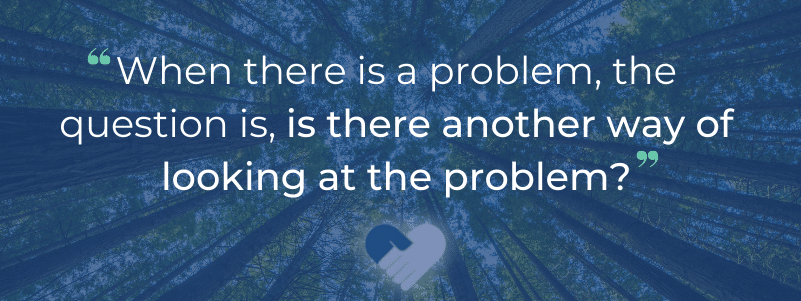Search by category, archive or keyword

The most effective treatment for alcohol dependence is 12-step facilitation.
https://www.niaaa.nih.gov/news-events/news-releases/niaaa-reports-project-match-main-findings
No matter which counseling strategy you choose to research, from psychoanalytic therapy to postmodern approaches, you will read, hear, and see the 12-Step philosophy in all of them. Psychoanalytic theory has existed since the 1890s, and Alcoholics Anonymous (AA) since 1935. All the therapies and counseling theories came after psychoanalytic theory and are the foundation of all other modern therapies.
If you say you ‘hate’ AA, you hate insight, change in perception, and addressing your character defects and shortcomings, ultimately revealing that you are unteachable at this time.
Even if it were true that AA isn’t for everyone, what it represents and seeks to accomplish certainly is. You wouldn’t have to technically be an alcoholic or a drug addict to benefit from the life-changing suggestions in AA.
If you read the book of AA, you will eventually see that the alcoholic’s problem is in their mind. Undoubtedly, alcohol itself is a problem, but why alcohol is consumed is an internal problem that can be addressed with a change in behavior and perception–what all counseling theories seek to accomplish.

What Strategies are Used to Treat Alcoholism?
Most treatment centers use evidence-based intervention and treatment strategies. We believe that every addict and alcoholic can benefit from working through the issues, problems, trauma, perceptions, and behaviors that lead them to escape their struggles rather than address them.
The use of drugs and alcohol to self-medicate is a temporary solution that causes more problems. As a result, the more problems the addict or alcoholic brings themselves, the more alcohol and drugs they use to self-medicate.
Most people who use substances to cope are filling a void; sometimes, they don’t even know what that void is. For some substance users, the trauma and memories are vivid. For others, it may have been from early childhood experiences that occurred before the ability to remember the experience–referred to as implicit memory.
Whatever the case, an alcoholic or an addict can continue to fill the void with substances, or they can fill it with something healthy.
Some of the most successful strategies are spiritual in nature. Very often, alcoholics find relief in changing their behavior and their perception while addressing their character defects, such as resentment, blaming others, and selfishness. They find a purpose in life that involves helping others.
Read More: Substance Use and Relapse Triggers

When one realizes that the world does not revolve around them and them alone and that other people on the planet can and will be affected by their actions, their perceptions, behaviors, and actions begin to change.
One strategy that is very effective and often overlooked is addressing the environment. The environment includes the substance user’s family and surroundings. Outside of the most effective evidence-based strategies, we will discuss next the four strategies that we see as having the most impact are:
- Family of Substance Users Entering Recovery
This is somewhat of an evidence-based therapy called Behavioral Couples Therapy (BCT). It involves the spouse being part of the substance user’s recovery. And we see the same results when the whole family is involved in recovery efforts.
Families that join and stay connected with self-help groups such as Al-Anon, ACOA, etc., and attend individual therapy improve themselves and increase the chances of their loved one’s sobriety and clean time.
Family recovery can also help with boundaries and accountability to help their loved one stay in treatment longer and decrease the risk of treatment dropout.
- Long-Term Treatment
The National Institute on Drug Abuse states that treatment participation for less than 90 days has limited effectiveness, and treatment dropout is a significant problem.
- Sober Living or Halfway House After Treatment
As stated above, longer-term treatment is more effective. When a substance user leaves treatment and is held accountable as they slowly reenter society drug and alcohol-free, their recovery rates often go up.
It is easy for someone to stay sober in treatment. It is far more challenging to stay sober after treatment, especially if there is an immediate return to the substance user’s pre-treatment environment.
- Effective Counselor
Study after study shows that the right counselor can get farther with a substance user delivering the wrong treatment than the wrong counselor can get with a substance user providing the proper treatment.
People listen to people they like and can relate to; people buy goods and services from people they trust and want. If they don’t connect with their treatment team, they won’t hear what their treatment team says.
An intervention is not about how to control the substance user; it is about how to let go of believing you can.
“The most formidable challenge we professionals face is families not accepting our suggested solutions. Rather, they only hear us challenging theirs. Interventions are as much about families letting go of old ideas as they are about being open to new ones. Before a family can do something about the problem, they must stop allowing the problem to persist. These same thoughts and principles apply to your loved one in need of help.”
Mike Loverde, MHS, CIP



